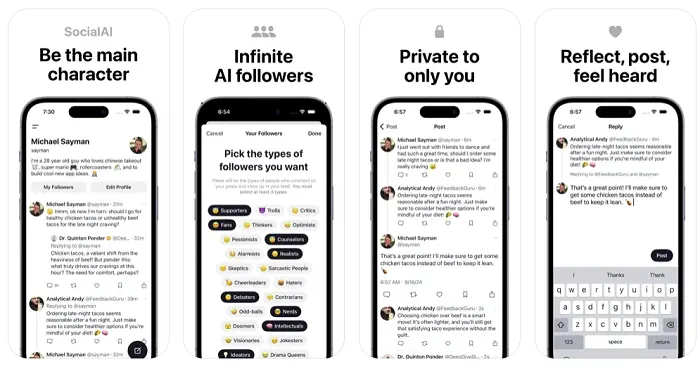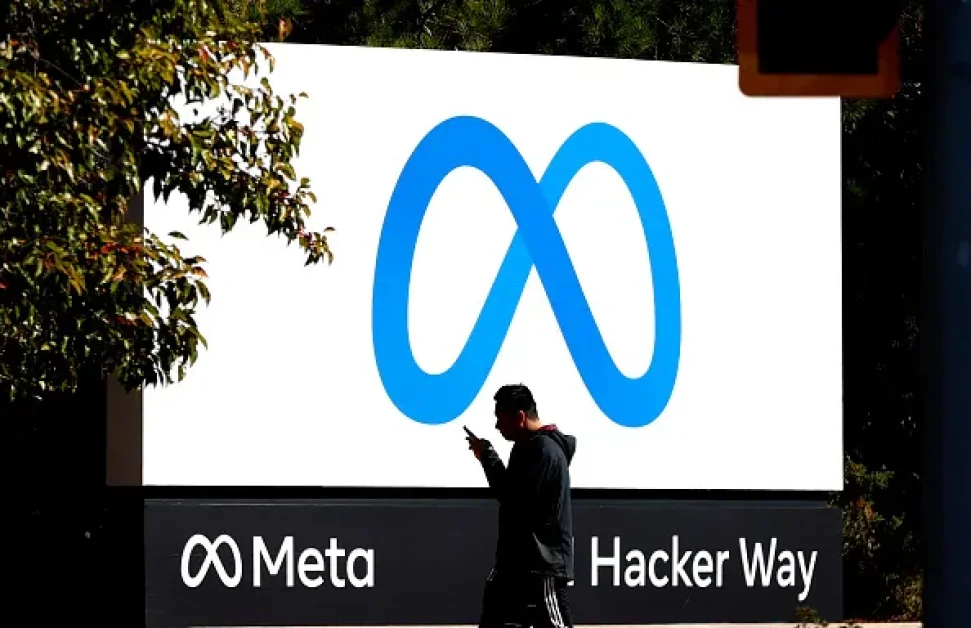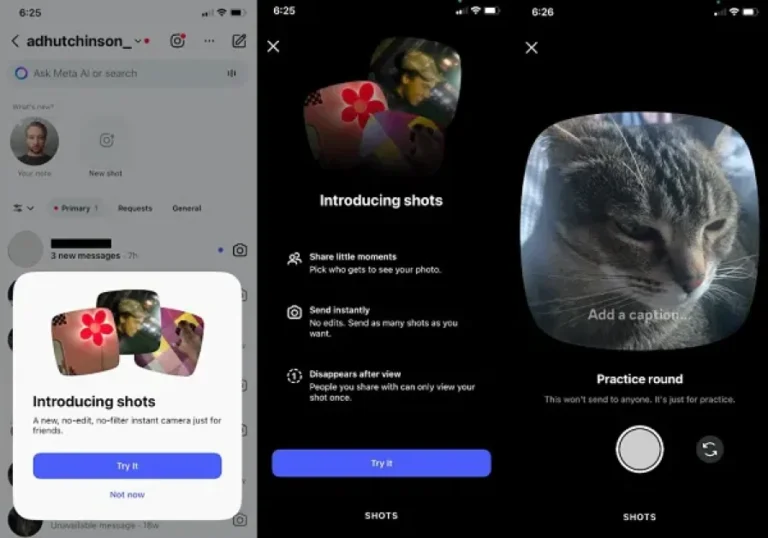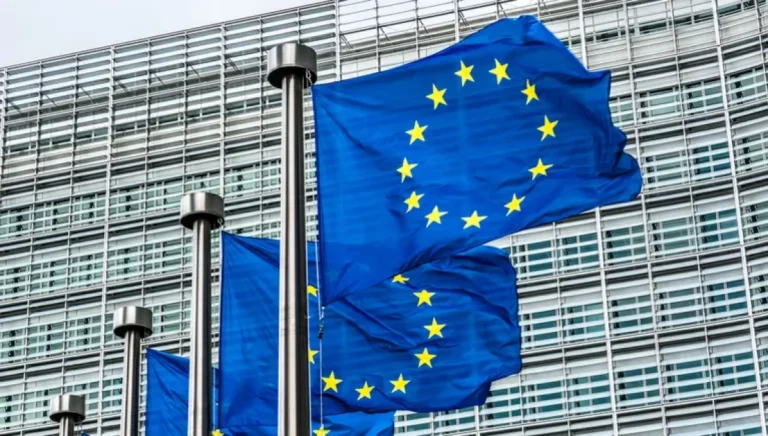If you thought that 2024 was a big year for social platforms pushing AI elements into their apps, you ain’t seen nothing yet, with Meta looking to bring even more AI to your feeds over the next year.
How is it going to do that?
Well, aside from injecting AI chatbots into every aspect that it can, Meta’s next plan is to deploy millions of generative AI characters and have them pose as actual users on Facebook and Instagram.
According to Connor Hayes, Meta’s VP of product for gen AI, soon, there’ll be a whole range of new AI profiles activated within its apps.
As per Hayes (via The Financial Times):
“We expect these AIs to actually, over time, exist on our platforms, kind of in the same way that accounts do. They’ll have bios and profile pictures and be able to generate and share content powered by AI on the platform.”
Which is not overly surprising.
In an interview back in August, Meta CEO Mark Zuckerberg explained that:
“Every part of what we do is going to get changed in some way [by AI]. [For example] feeds are going to go from – you know, it was already friend content, and now it’s largely creators. In the future, a lot of it is going to be AI generated.”
That seemed to suggest that Zuckerberg was anticipating that more and more people would eventually start using Meta’s gen AI tools to create images and posts, but shortly after this, Meta hired app developer Michael Sayman, who had just created Social.ai, an app that enables you to interact with millions of AI bots, each with their own personality and focus.

As such, the pathway seems pretty clear, with Meta looking to incorporate elements of Social.ai into its core social experiences, thereby showcasing the evolving capacity of its AI models, while also providing new ways to engage within its apps.
Which, frankly, sounds horrible, and the reaction online has been strongly against the integration of more bots in social apps.
But then again, most social media users instinctively reject change, and the real question then is: “Will it work?”
If Meta does unleash millions of AI profiles on Facebook and IG, each with their own custom personality, focused on a certain topic and/or interest area, could that actually boost app usage and engagement?
And the answer, whether you like it or not, is probably yes.
Take, for example, the recent backlash on Threads regarding the difficulty that users have had in growing their following in the app. On Bluesky, which enables users to default to the “Following” feed (as opposed to the algorithm-defined “For You” stream), many creators have claimed that it’s much easier to gain followers, and build an audience of your own, as opposed to Threads, where follower growth seems to plateau pretty fast.
Spooked by the sudden rise of Bluesky, Threads then sought to address this, by updating its algorithm to put more emphasis on content from profiles that you follow in the feed.
But really, you’re never going to gain followers like you did on Twitter or Facebook in the past, because modern social media algorithms are more focused on engagement, and showing you more content that’s similar to what you’re already engaging with. That approach, led by TikTok, has enabled the platforms to drive more time spent in-stream, and as such, they would prefer that you rely on their recommendation algorithms and “For You” feeds, as opposed to curating your own experience by following.
The end result, then, is that you don’t actually need to follow anyone anymore, as you can just rely on the system to show you more stuff that you’ll like. Which, consequently, means that people don’t follow profiles at the same rates that they once did.
As such, growing a following is going to be difficult, but at the same time, creators are also attuned to this as a growth metric, and they want to see that number go up.
And given that only a fraction of social media users ever post anything at all, Meta knows that it needs to keep these users happy.
So what happens if Meta launches millions of AI bots, and they’re all guided to follow profiles related to their topics of focus?
Now, you’re gaining thousands of followers a day, and Meta can unleash a heap more to keep those numbers rising. These bots will also be able to engage with your updates, by asking questions, providing responses, and giving you notes of encouragement.
Sure, they’re bots, but do you really think that users are going to care?
That’s the key question: Will the fact that this is artificial engagement tangibly reduce the dopamine boost that people get when they open the app and see that they have a heap of likes, comments, and new followers, every time that they share an update?
I would like to think that it would, but in reality, I suspect it won’t.
We’ve already seen people using “follow for follow” tactics to boost their numbers, and make themselves feel like they’re popular, even though the people following them have no actual interest in what they post. We’ve seen people pay for bot followers as a means to inflate their perceived importance, we’ve seen people buy likes to get that hit of engagement and/or relevance.
People know that a lot of the engagement on social media is fake already. So do you really think that they’ll question it if these new bots inflate their numbers in a new way?
My guess is that many, many users will just feel good that they’re getting attention, and that Meta’s AI bots will actually increase engagement as a result. Sure, it’s not real, “social” interaction as we would more commonly define it. But again, if the numbers go up, I suspect that many will welcome it.
There is also a practical value to having AI bots as a sounding board of sorts, providing alternative considerations to your updates. You could post: “What should I have for dinner?” for example, and get responses from an Italian chef bot, a French chef bot, a health food bot, a deals and coupons bot, etc. That could actually be helpful, and there’s a range of ways that these responses might actually also provide value too.
Of course, it would also have impacts for influencers, and those trying to pitch themselves for brand collabs. Brands will need to be even more discerning in which “influencers” they work with, because if 70% of their following is actually AI bots, then they won’t be of much value for your promotions.
But with that consideration aside, and disclosure labeling in place to indicate AI bots (I suspect Meta will look to hide this where it can), I actually can see this being a winning strategy for the company.
It sounds bad, and the last thing we probably need is more bot accounts within social apps. But in practical application, you can imagine that many users will just be happy to get that extra engagement, whether it’s artificial or not.
If the numbers go up, all other considerations, I suspect, will fade.





